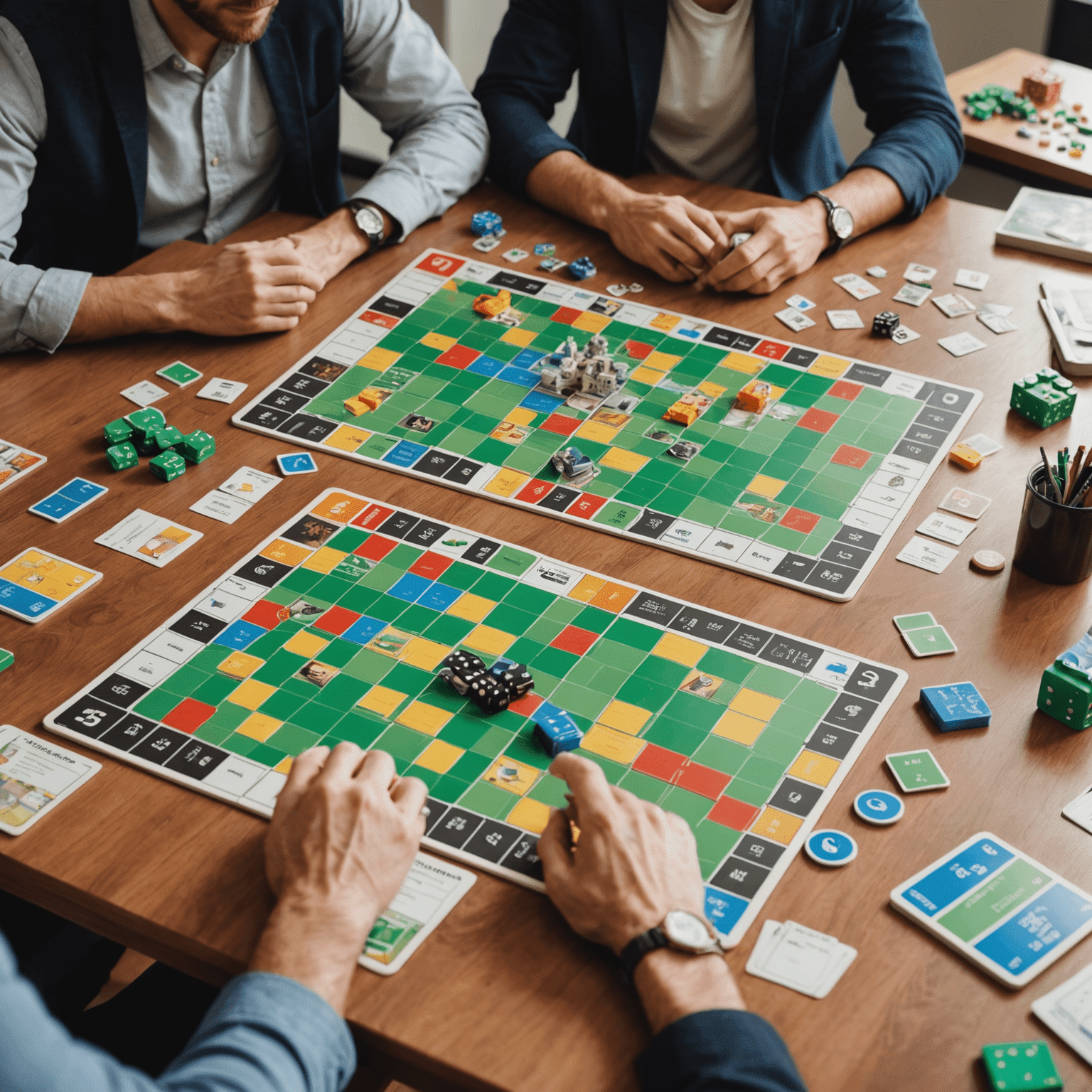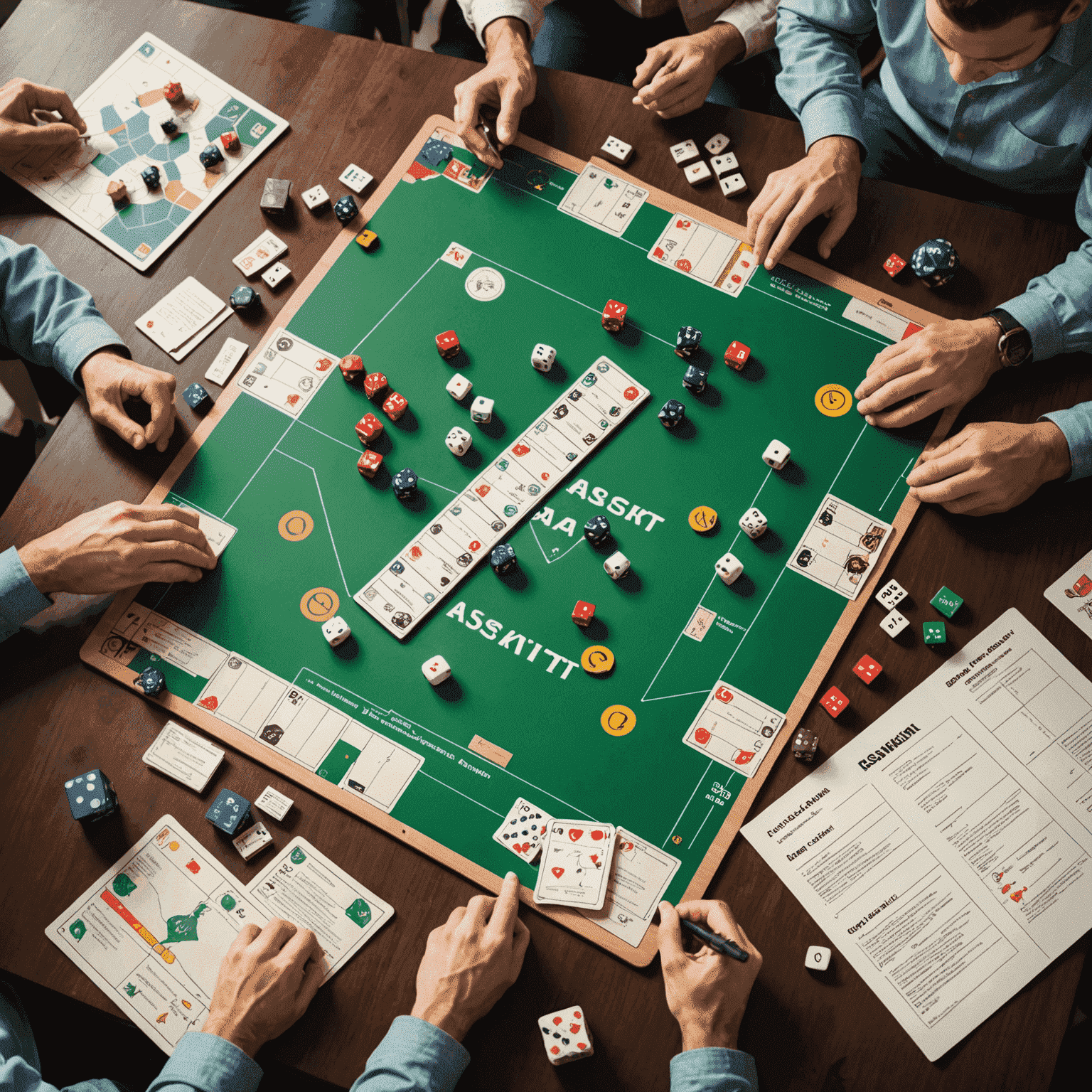From Tabletop to Real Life: Applying Board Game Logic to Everyday Challenges

Board games have long been cherished as a source of entertainment, but their value extends far beyond mere amusement. The skills and thought processes developed through strategic gaming can be powerfully applied to real-world situations, enhancing our decision-making abilities and problem-solving skills in everyday life.
Strategic Thinking and Planning
Many board games require players to think several moves ahead, considering various outcomes and planning accordingly. This same approach can be invaluable in professional settings, where long-term strategy and foresight are crucial. Whether you're mapping out a business plan or organizing a large-scale project, the ability to anticipate challenges and plan for contingencies is a skill honed at the gaming table.
Resource Management
Games often involve managing limited resources, be it currency, action points, or game pieces. This translates directly to personal finance, time management, and even environmental conservation in the real world. The careful allocation of resources learned in games like "Catan" or "Power Grid" can help in budgeting and prioritizing in daily life.

Adaptability and Quick Thinking
Board games often throw unexpected challenges at players, requiring them to adapt their strategies on the fly. This cultivates a mindset of flexibility and quick thinking that is invaluable in today's fast-paced world. Whether dealing with sudden changes in the workplace or navigating personal relationships, the ability to pivot and adjust learned through gaming can be a significant asset.
Negotiation and Diplomacy
Many games involve elements of negotiation, alliance-building, and conflict resolution. These social skills are directly applicable to professional and personal interactions. The art of persuasion, compromise, and reading others' intentions are all practiced in games like "Diplomacy" or "Cosmic Encounter," and can significantly enhance one's ability to navigate complex social dynamics in real life.
Risk Assessment and Probability
Board games often involve an element of chance, teaching players to assess risks and understand probability. This mathematical thinking can be applied to various real-life scenarios, from financial investments to everyday decision-making. The ability to weigh potential outcomes and make informed choices based on probability is a valuable skill in many aspects of life.

Pattern Recognition
Many games require players to identify patterns and use them to their advantage. This skill is highly transferable to fields such as data analysis, scientific research, and even creative problem-solving in everyday situations. The ability to recognize trends and patterns can lead to more efficient processes and innovative solutions in various aspects of life.
Emotional Intelligence and Sportsmanship
Perhaps one of the most valuable lessons from board gaming is learning to handle victory and defeat gracefully. This emotional intelligence translates into better stress management, resilience, and interpersonal relationships in real life. The sportsmanship developed through gaming can lead to a more positive and collaborative approach to challenges in both personal and professional spheres.
Conclusion
The skills developed through board gaming are not just confined to the tabletop; they have real and significant applications in everyday life. From strategic thinking and resource management to emotional intelligence and adaptability, the lessons learned through gaming can enhance our approach to real-world challenges. So the next time you sit down for a game night, remember that you're not just playing – you're honing valuable life skills that can lead to success in many areas of your life.